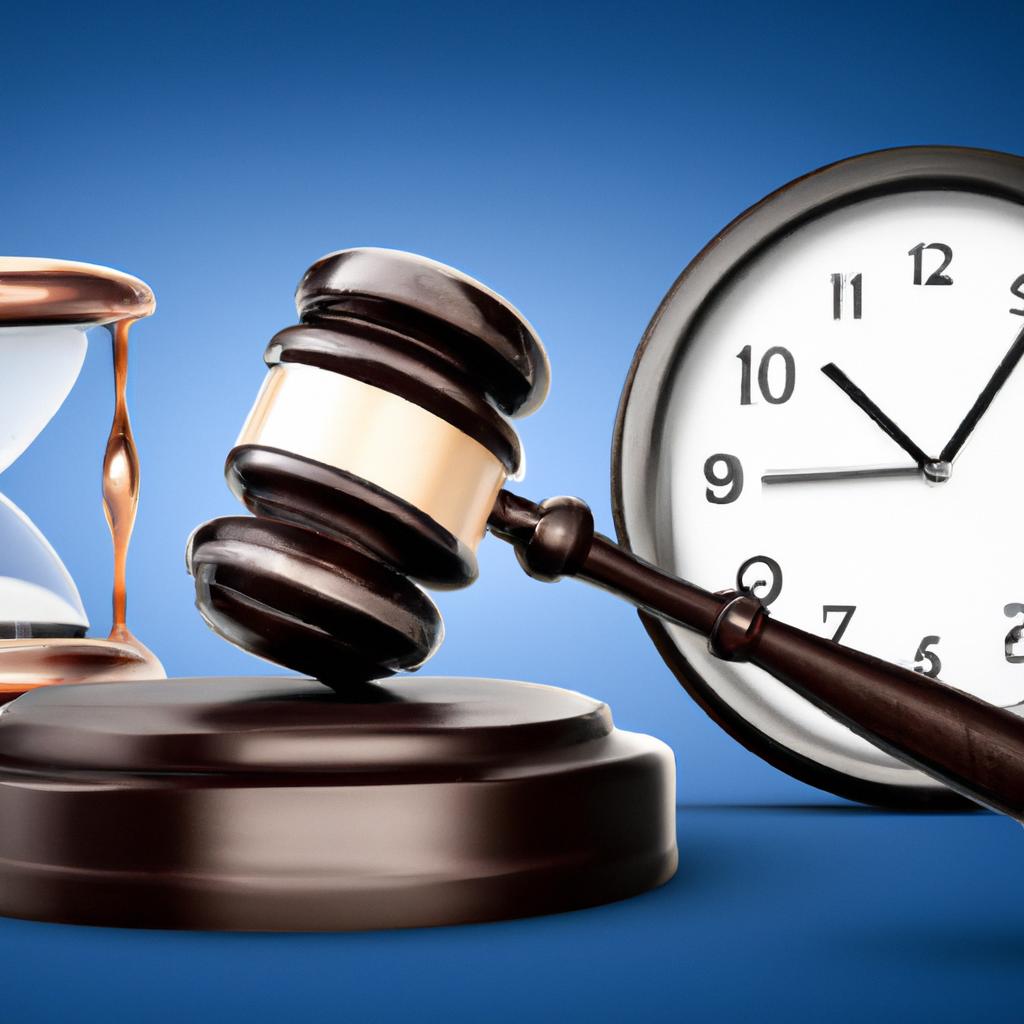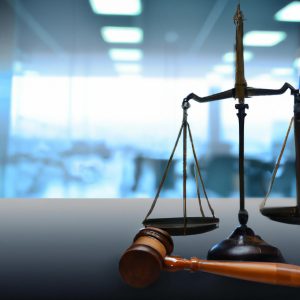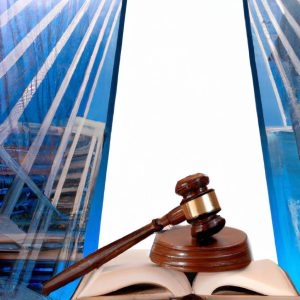In the intricate web of estate planning and the settlement of final affairs, few tasks are as crucial yet often overlooked as the timely change of address after the passing of a loved one. As seasoned legal professionals at Morgan Legal Group in the heart of New York City, we understand the complexities and legal intricacies involved in navigating such a delicate matter. In this article, we will delve into the importance of promptly updating a deceased individual’s address and the implications of failing to do so in a timely manner. Join us as we explore the implications of this seemingly mundane task in the larger tapestry of estate planning and probate proceedings.
– Addressing the Legalities: A Guide to Changing Address After Death
When a loved one passes away, there are a myriad of legalities to address, including changing the deceased person’s address. This process can be overwhelming and confusing, but it is an important step to take in order to properly close out their affairs. Below, we have outlined a comprehensive guide to assist you in navigating the legalities of changing address after death.
First and foremost, it is crucial to notify the appropriate entities of the individual’s passing and update their address accordingly. This includes:
- Social Security Administration
- Department of Motor Vehicles
- Post Office
- Insurance companies
- Banks and financial institutions

– Practical Steps for Notifying Institutions and Agencies of a Deceased Individual’s Change of Address
When a loved one passes away, it is crucial to notify various institutions and agencies of their change of address. This is an important step in preventing identity theft and minimizing the risk of fraud. Below are practical steps to effectively communicate a deceased individual’s change of address:
- Make a list of institutions: Start by compiling a list of institutions and agencies that need to be notified of the change of address. This may include banks, credit card companies, utility providers, insurance companies, the Social Security Administration, and the post office.
- Contact each institution: Reach out to each institution on your list to inform them of the deceased individual’s change of address. Be prepared to provide necessary documents such as a death certificate and proof of your authority to act on behalf of the deceased, such as a Letter of Testamentary or a Power of Attorney.

– Ensuring a Smooth Transition: Best Practices for Updating Address Information Post-Death
Updating address information following the passing of a loved one can be a complex and emotional process. At Morgan Legal Group, our experienced team of attorneys understands the importance of ensuring a smooth transition during this difficult time. To assist you in completing this task efficiently and effectively, we have compiled a list of best practices to guide you through the process.
First and foremost, it is crucial to notify all relevant parties of the change of address. This includes government agencies, financial institutions, insurance companies, and any other organizations that may need to update their records. Make sure to provide them with the necessary documentation, such as a death certificate, to confirm the passing of your loved one. Additionally, consider setting up mail forwarding with the postal service to ensure that any mail sent to the old address is redirected to the new one. By following these steps, you can help prevent any issues that may arise from outdated address information and streamline the transition process.
| Contact | Phone Number |
|---|---|
| Social Security Administration | 1-800-772-1213 |
| Department of Motor Vehicles | 1-800-777-0133 |

– Avoiding Pitfalls: Common Mistakes to Avoid When Handling Address Changes Following a Loved One’s Passing
When handling address changes following a loved one’s passing, it is crucial to navigate the process carefully to avoid common pitfalls that can cause unnecessary stress and complications. One of the most common mistakes to avoid is failing to notify all necessary parties of the address change. This can lead to important documents being sent to the wrong address, causing delays and potential legal issues.
Another common mistake is not updating important accounts and subscriptions with the new address. Failing to update these details can result in missed bills, late payments, and other financial consequences. It is essential to take the time to notify all relevant parties of the address change to ensure a smooth transition and avoid any unnecessary complications.
Q&A
Q: What happens to a deceased person’s mail if they have not updated their address?
A: In most cases, the post office will return the mail to the sender labeled “deceased” or “return to sender.”
Q: How can loved ones notify companies and organizations of a deceased person’s change of address?
A: Loved ones can notify companies and organizations of a deceased person’s change of address by contacting them directly and providing the necessary documentation such as a death certificate.
Q: Are there any services or organizations that can assist with updating a deceased person’s address?
A: Yes, there are services like the Social Security Administration and the Veterans Affairs Administration that can assist with updating a deceased person’s address. Additionally, some companies offer bereavement services to help with this process.
Q: What should be done with any mail that continues to arrive at the deceased person’s old address?
A: Any mail that continues to arrive at the deceased person’s old address should be forwarded to the designated representative of the estate or returned to the sender marked “deceased.”
Q: What steps can be taken to prevent identity theft after a deceased person’s change of address?
A: To prevent identity theft after a deceased person’s change of address, loved ones should notify the credit bureaus, financial institutions, and government agencies of the death and update any accounts to prevent unauthorized access.
In Summary
As we navigate the complexities of life and death, one important task to consider is what happens to someone’s address after they’ve passed away. Whether it’s closing up a beloved home or updating important records, the change of address after death is a necessary step in the grieving process. By taking the time to address these practical matters, we can honor the memory of those we’ve lost and ensure that their affairs are handled with care. May this article serve as a guiding light in navigating this often overlooked aspect of saying goodbye. Remember, even in the face of loss, there can be a sense of order and closure in taking care of the small but significant details.
 Change of Address After Death: Steps, Tips, and Guidelines
Change of Address After Death: Steps, Tips, and Guidelines
Losing a loved one is a difficult and emotional experience for anyone. Amidst the grieving and funeral preparations, there are countless practical matters that need to be taken care of. One of them is changing the address of the deceased person. This process might seem overwhelming, but it is an essential task that needs to be completed to avoid any complications in the future. In this article, we will discuss the steps, tips, and guidelines for changing the address after a person’s death.
Why is it Necessary to Change the Address After Death?
Many people might wonder why it is important to change the address after someone’s death. There are several reasons for it, including:
– Closing or transferring utility services: If the deceased person was living alone, their utility services, such as electricity, gas, and water, need to be closed or transferred to a new address. This will prevent any future bills or issues that might arise.
– Updating legal documents: Address is an essential part of any legal document, such as a will, insurance policies, and bank accounts. Changing the address ensures that these documents are accurate and up-to-date.
– Avoiding identity theft: Identity theft is a major concern in today’s digital world. By changing the address, you can prevent any potential fraud or misuse of the deceased person’s personal information.
– Receiving important mail: If the deceased person was receiving any important mail, such as tax documents or pension statements, changing the address will ensure that these documents are received by the intended recipient.
Steps to Change the Address After Death
1. Obtain a certified copy of the death certificate: Before you can change the address, you will need to provide proof of the person’s death. This can be done by obtaining a certified copy of the death certificate from the local registrar’s office.
2. Inform the post office: The first step to changing the address is to inform the post office. You can do this by filling out a “Change of Address” form. The form can be obtained from your local post office, or you can fill it out online on the USPS website. You will need to provide a copy of the death certificate and proof that you are the executor of the deceased person’s will.
3. Notify government agencies: It is essential to notify government agencies, such as the Social Security Administration, the Department of Motor Vehicles, and the Department of Veterans Affairs, about the death and change of address. This will ensure that all government benefits are stopped, and any future correspondence is sent to the new address.
4. Inform financial institutions: Next, you should inform the deceased person’s bank, credit card companies, and any other financial institutions about their death and change of address. This will prevent any fraudulent activities and ensure that their accounts are closed or transferred to a new address.
5. Contact utility companies: Contact all the utility companies and inform them about the death and change of address. This includes electricity, gas, water, internet, and phone service providers. You can either close the accounts or transfer them to a new address.
6. Change the address on legal documents: As mentioned earlier, changing the address on legal documents, such as a will, insurance policies, and bank accounts, is crucial. Gather all the necessary documents and update the address accordingly. You might also need to provide a copy of the death certificate.
7. Redirect mail: In addition to changing the address, you can also redirect the deceased person’s mail to their executor’s address or the new address of the beneficiaries. This can be done through the post office for a fee.
Tips for Changing the Address After Death
– Start the process as soon as possible: It is best to start changing the address as soon as possible to prevent any complications or delays.
– Keep a record: Keep a record of all the agencies, companies, and individuals you have informed about the change of address. This will help you stay organized and ensure that you have not missed anyone.
– Ask for help: Dealing with the death of a loved one can be emotionally draining. Don’t hesitate to ask for help from family and friends in completing this task.
– Double-check: Before finalizing the change of address, make sure to double-check all the information to avoid any errors.
In conclusion, changing the address after a person’s death is an important and necessary task that needs to be completed. By following the steps and tips mentioned above, you can ensure a smooth process and avoid any future complications. Remember to take care of yourself and seek support if needed during this difficult time.







